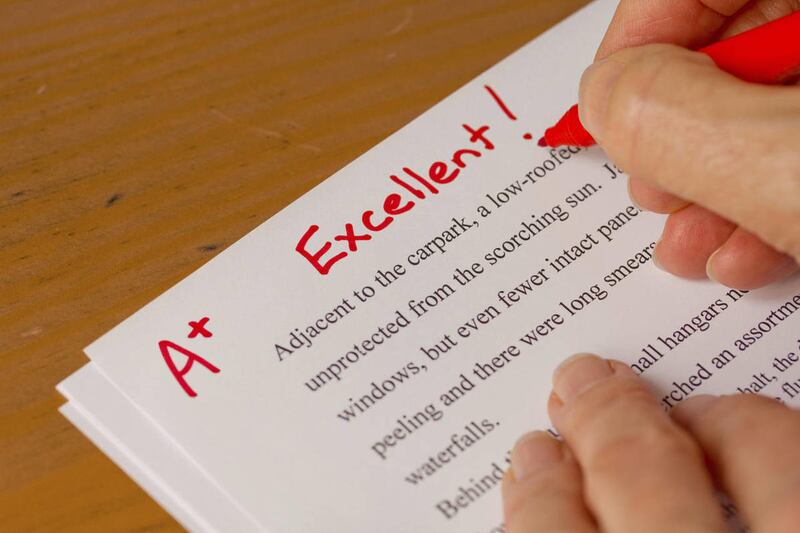A flood of professors have confessed to falling into the trap of grade inflation, saying it's job security.
The Atlantic, Guernica, Slate and Higher Ed News have all recently published confessions of grade inflators, allowing them the chance to explain and defend the academic trend. Two common threads run through all four stories: job security and abuse avoidance.
All four confessors name their adjunct status as the main problem. Adjuncts are part-time employees who teach mainly intro-level courses. Because these teachers are not on a tenure track and likely never will be, universities use different evaluation policies to determine their effectiveness.
“Adjuncts are often evaluated solely based on student evaluations,” Rebecca Schuman wrote in her Slate article, “popularity is the only thing keeping them employed.”
Because adjuncts don’t have access to these evaluations until after executive decisions are made, they rely on websites like RateMyProfessor.com to help them gauge their popularity. RateMyProfessor.com is a website students use to research potential professors by looking at what previous students have said about them.
RateMyProfessor.com rates professors on a different rubric than what a university’s administration might use, ranking teachers on their easiness, helpfulness, clarity and physical attractiveness. Even with the differences, adjuncts can get a good feel for how their end-of-term student evaluations will look by checking these rating websites.
This may not be such a big issue, argues the confessors, if it weren’t for how rampant the problem is becoming.
“Most American university-level professors are contingent employees,” Rachel Riederer wrote for Guernica. “Some of these contingent employees are adjunct instructors: part-time employees, paid per class, often without health insurance or retirement benefits. This is a relatively new phenomenon: In 1969, 78 percent of professors held tenure-track positions. By 2009, this percentage had shrunk to 33.5. The rest of the professors holding jobs — whether part time or full time — do so without any job security.”
Riederer and Schuman said that they’d consider more stringent grading policies if they were given better employment benefits, but this is becoming increasingly unlikely, according to an article by Nate Kreuter for Inside Higher Ed. The problem is based on what Kreuter called “customer mentality” in higher education.
“We are undeniably in an era where the governing model of education is one that conceives of students as customers,” Kreuter said. “In fact, this cognitive model of how colleges and students relate to one another, that of a business selling to customers, is so deeply rooted in how we see and discuss higher education that it can be difficult to imagine other frames or metaphors for the relationship.”
With universities funneling more of their resources into attracting and entertaining students, the adjunct situation isn’t likely to improve. But it isn’t all about money. Schuman admitted that it was, in part, about avoiding the backlash of entitlement the millennials have become notorious for.
"If I graded truly fairly — as in, a C means actual average work — the ‘customers’ would do their level best to ruin my life,” Schuman wrote. “Granted, there exist professors whose will to power out-powers grade-gripers. There are stalwarts who remain impervious to students’ tenacious complaints, I admire and cherish those professors, but I am not one of them.”
Schuman opened a Twitter account (@pankisseskafka) to create a place where teachers could share their experience with disgruntled students. Schuman has received thousands of tweets recounting tales of tears and threats from students who received a B+ instead of the A they believed was deserved.
“My time is worth more than [this] bombardment,” Schuman wrote. “Everyone’s is. The other day, a friend of mine who teaches messaged me in a huff, ‘I posted my grades at 10:00, and by 10:04 I had two hysterical complainers.’ ”
Whether it’s job security or an attempt to maintain their sanity after releasing grades, these adjuncts say that it isn’t really a problem.
There's the argument that grade inflation is unfair,” Conor Friedersdorf wrote for the Atlantic. “Students who do exceptional work are given the very same "reward" as students who do mediocre work. It's wrong to conceive of grades as reward for acquiring more knowledge than other people. The reward is coming away with a better education.”
EMAIL: nshepard@deseretnews.com
TWITTER: @NicoleEShepard


